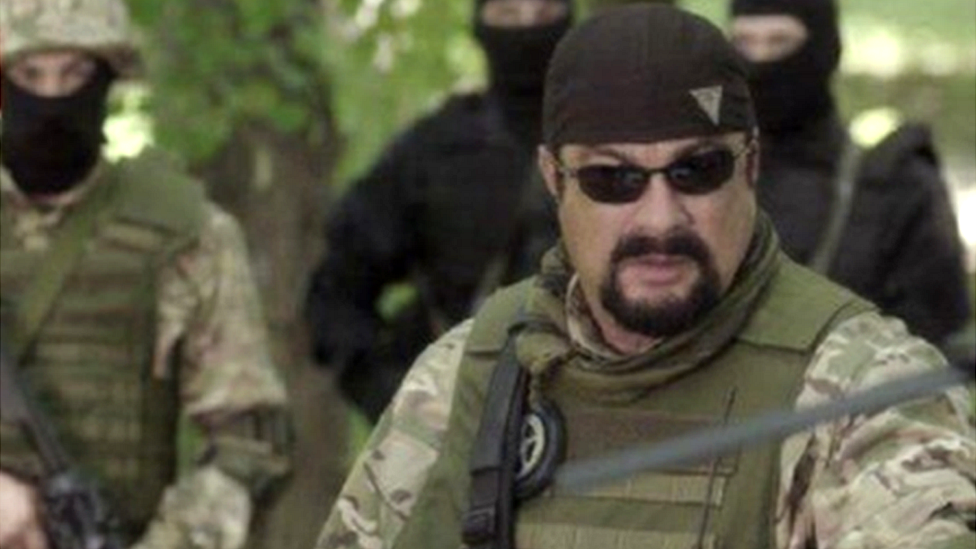Leicester university lecturer responds to pro-Putin allegations
- Published
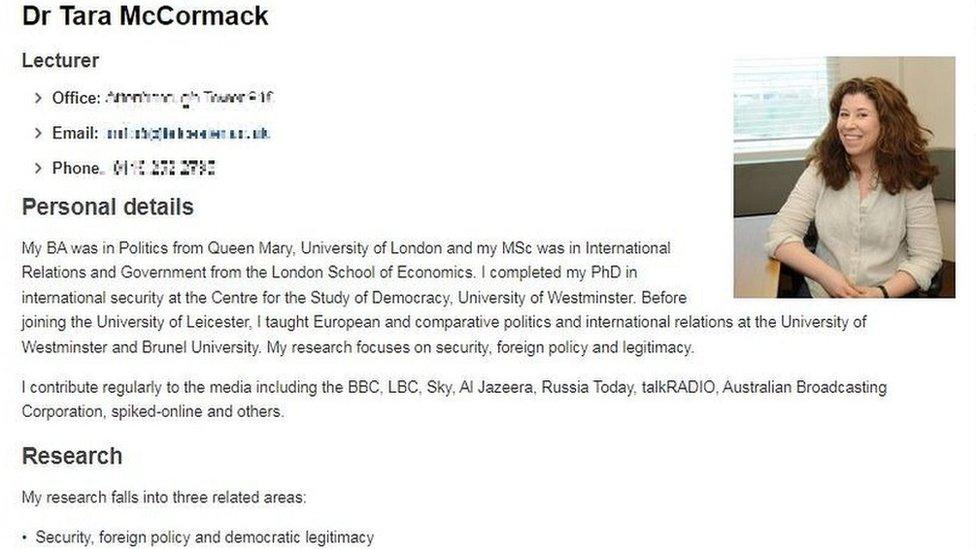
Dr Tara McCormack said her Russian TV appearances were listed with all other media work
An academic has responded after being branded a "useful idiot" accused of spreading pro-Putin propaganda.
Conservative MP Robert Halfon took aim at Dr Tara McCormack as he called for action on academics he felt were too sympathetic to the Kremlin.
He said Dr McCormack had tweeted about "disinformation on both sides" and "boasted" about being on Russia Today.
Dr McCormack said the tweet had been criticism of a contributor on a specific news report.
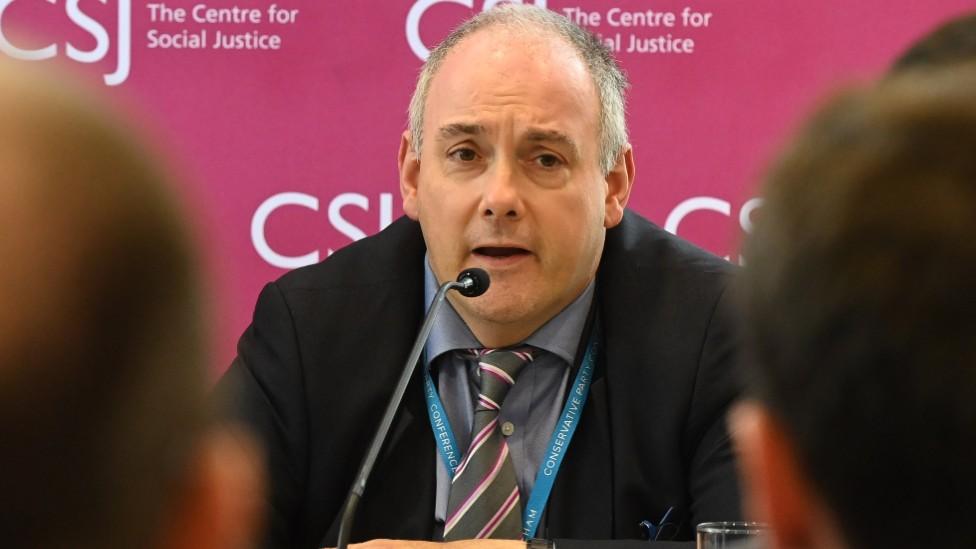
Robert Halfon called for the government to intervene with universities
She added her varied media appearances had been listed on her university profile for years.
The row started when Mr Halfon, chair of the Commons Education Committee, picked up media reports highlighting what he called "pro-Putinist propaganda at some of our leading universities".
She was one of three academics highlighted during an exchange with Education Secretary Nadhim Zahawi.
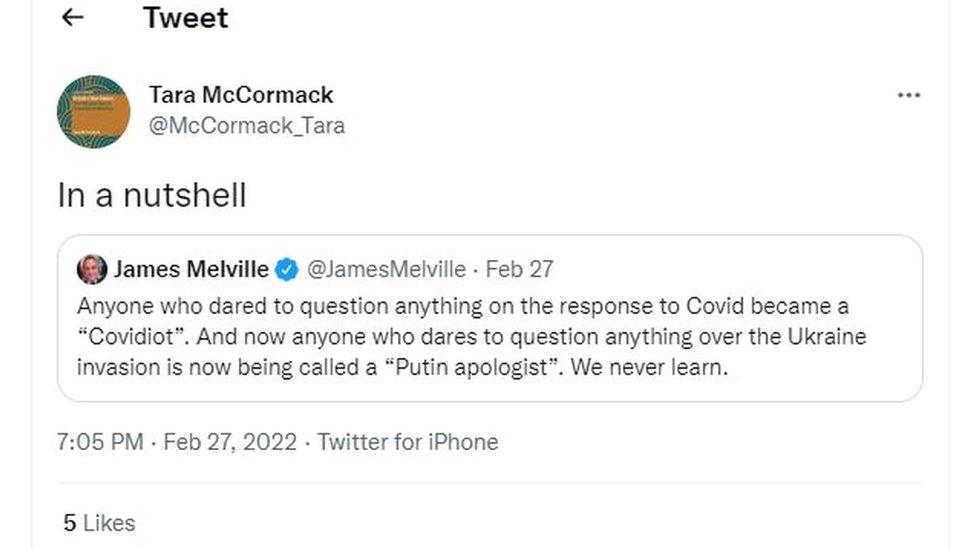
Dr Tara McCormack has commented on the crisis in Ukraine regularly since the invasion began
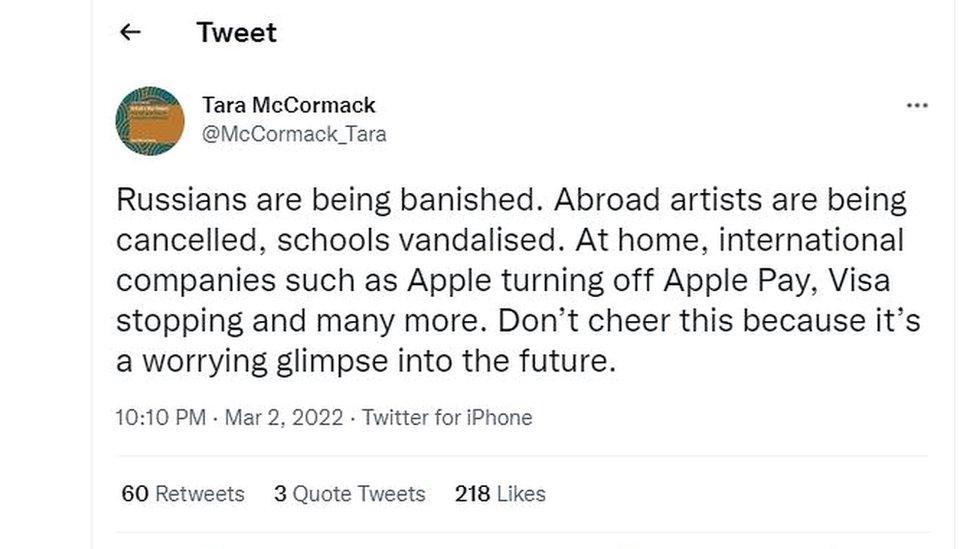
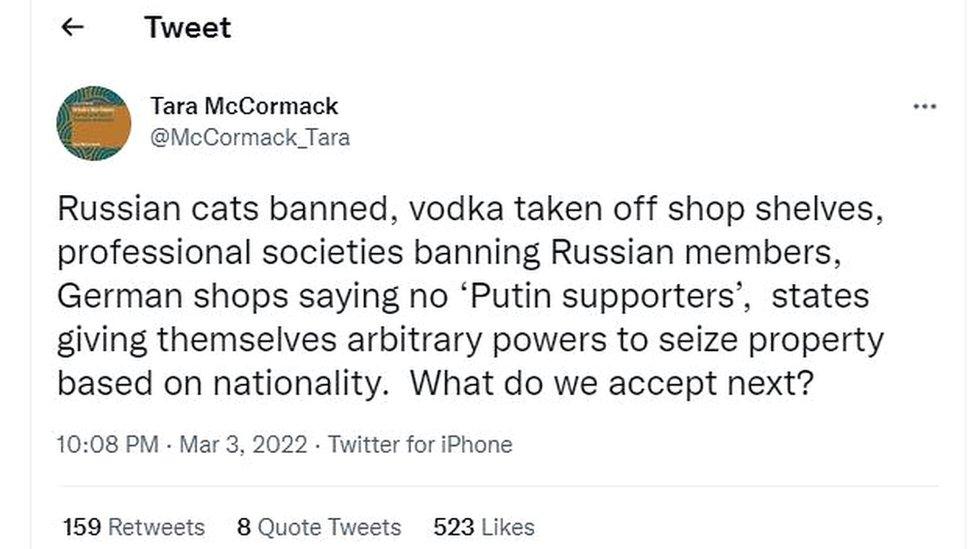
Mr Halfon said: "At Leicester, Tara McCormack talked about 'ludicrous disinformation on both sides, external' and boasted about appearing on Russia Today.
"Will my Right Honourable friend contact these universities directly to stop them acting as useful idiots for President Putin's atrocities in the Ukraine?"
Mr Zahawi said Higher and Further Education Minister Michelle Donelan was "already on the case".
"Useful idiot" is a Cold War phrase to denote someone who does the enemies' work without fully realising it.
But Dr McCormack, a lecturer in international relations at the University of Leicester, said she was surprised at the allegation.
Her tweet about disinformation, she said, was aimed at a UK news report that used what she described as a "discredited" contributor.
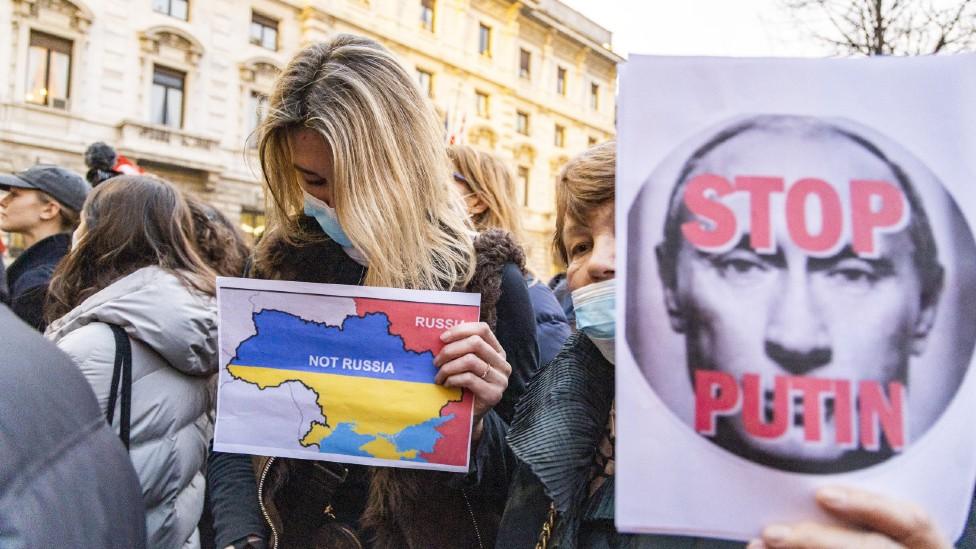
Dr Tara McCormack said it was important to defend free speech during times of war
"The broader point, on disinformation in war, is something I would stand by - truth is the first casualty of war.
"The point is, it is an established fact that in situations of conflict, all sides promote disinformation," she said.
But Dr McCormack felt there was an unhealthy subtext to the MP's comments.
"I'm a bit alarmed at the tenor of the discussion in the House of Commons," she added.
"Are we now saying, in a very febrile atmosphere, that we can't have opinions on war and conflict that are not approved of by our government?
"If that's the case, how is that democratic? Or compatible with free society, let alone academic freedom?"

Follow BBC East Midlands on Facebook, external, on Twitter, external, or on Instagram, external. Send your story ideas to eastmidsnews@bbc.co.uk, external.
- Published15 March 2022
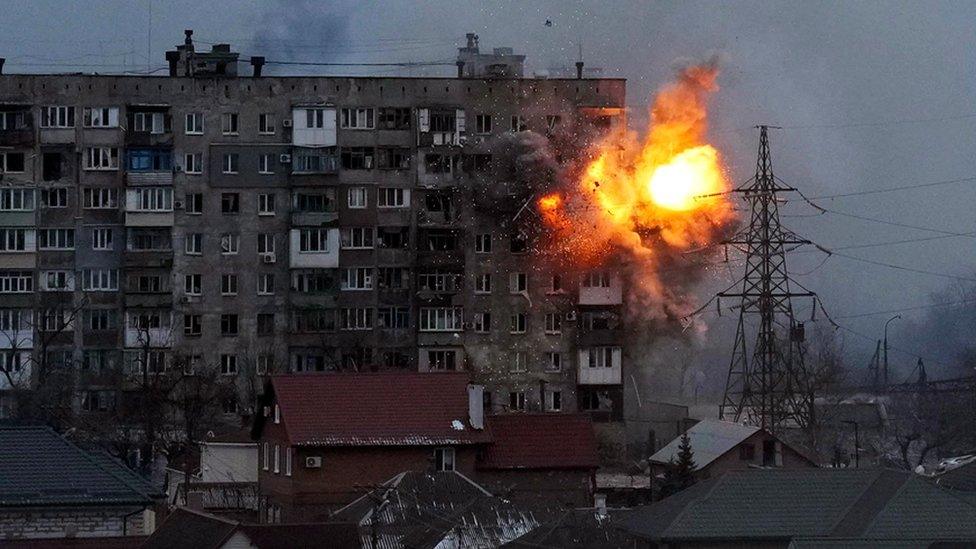
- Published15 March 2022
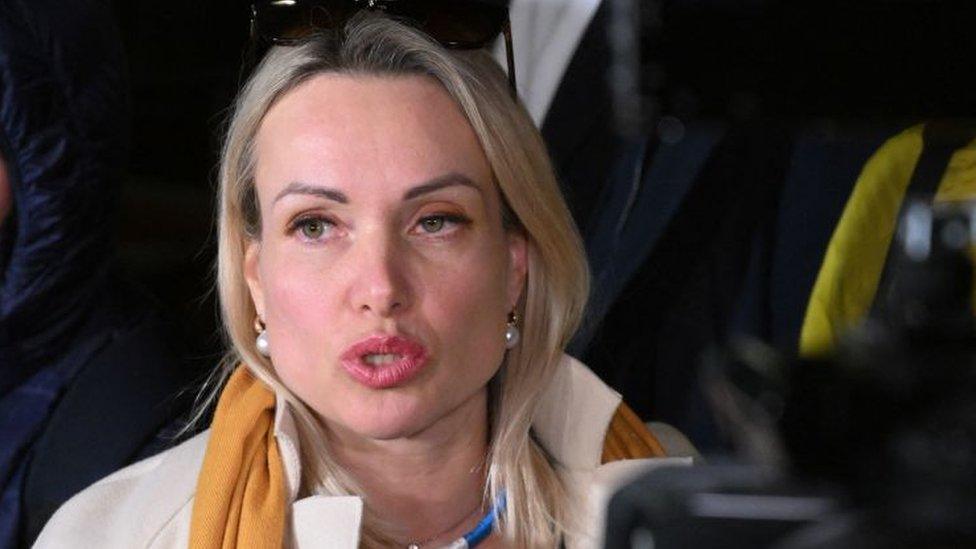
- Published14 March 2022
